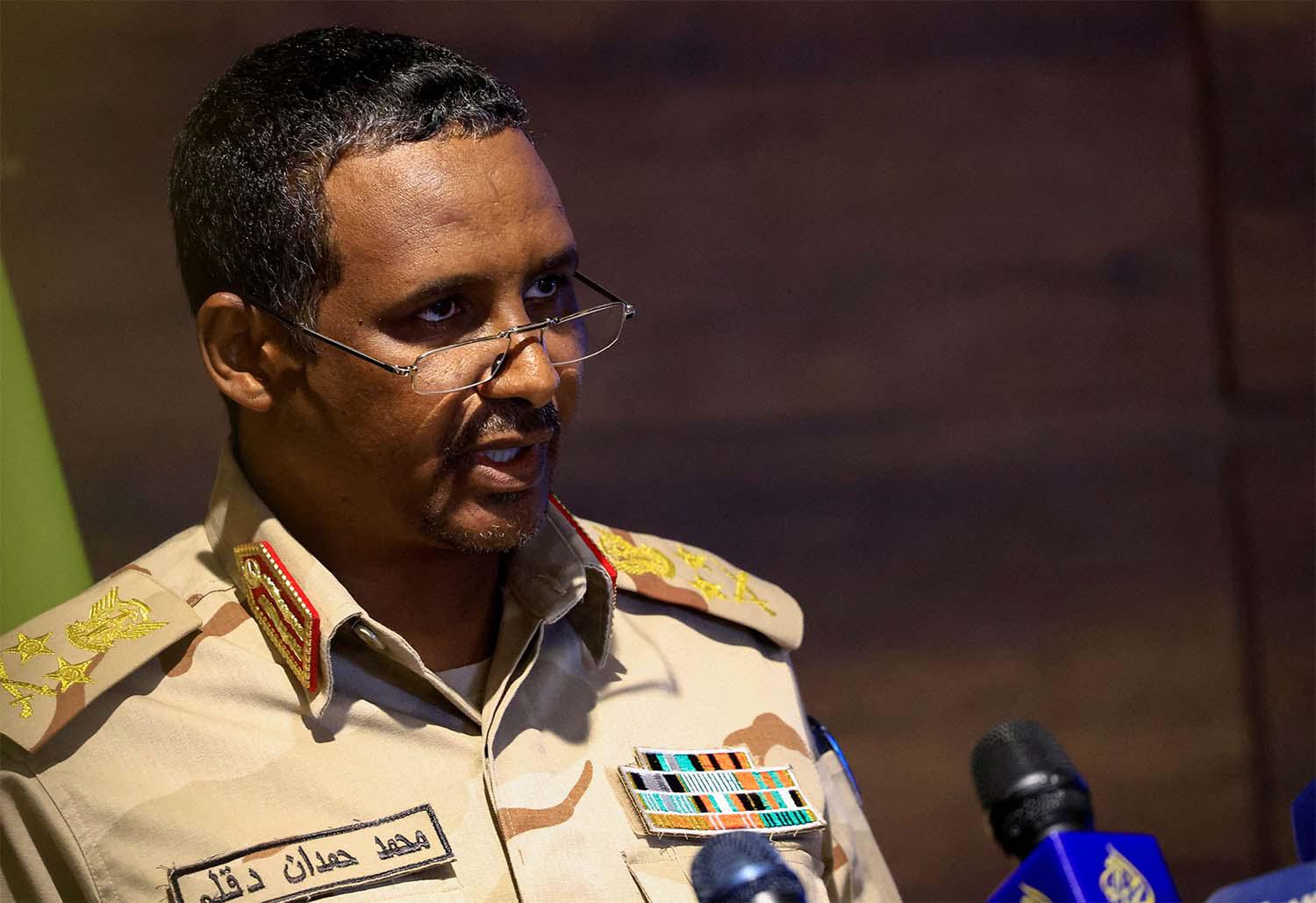
In a strikingly candid speech delivered on Wednesday, Mohamed Hamdan Dagalo, the leader of Sudan’s Rapid Support Forces (RSF), launched a fierce critique aimed at a variety of targets, including Egypt, the United States, Sudanese army generals (SAF), rival factions from Darfur, and even Iran and the former Islamic Movement.
This unscripted address, delivered in colloquial Sudanese Arabic and broadcast across RSF’s social media platforms, has sent ripples through the geopolitical landscape, especially following the recent U.S. sanctions imposed on Dagalo’s brother, Al Goney Dagalo, over allegations of arms procurement for the RSF.
Dagalo took this opportunity to portray the RSF as defenders of Sudan’s sovereignty, framing the ongoing conflict as a struggle against foreign interference and betrayal. He asserted that the RSF bears no responsibility for the war, instead claiming victimhood in the face of international neglect.
Highlighting his warnings prior to the outbreak of conflict, Dagalo recounted a critical meeting held at the Saudi ambassador’s residence with U.S., Saudi, and Sudanese officials, where he felt his concerns were dismissed.
One of the most pointed accusations made by Dagalo was directed at Egypt, which he accused of a duplicitous role in the conflict by supporting General al-Burhan and the SAF.
RSF chief alleged that Egyptian forces were conducting airstrikes on civilian areas and RSF strongholds, stating, “The Egyptian Air Force is bombing our people and destroying our land.” In Dagalo’s view, this alignment with al-Burhan reflects a “treacherous” campaign against the Sudanese populace.
Dagalo also launched a vehement attack on the resurgence of Islamist figures in Sudan, particularly targeting al-Burhan for being “held hostage” by the Islamist movement, led by Ali Karti and Osama Abdallah. He attributed the war’s eruption, the military coup in October 2021, and the brutal crackdown on the June 3, 2019 sit-in to al-Burhan, holding him responsible for a series of violent acts and internal power struggles, including attempts to undermine Lt. Gen. Shamseldin Kabashi.
Regarding the involvement of rebel leaders in the conflict, Dagalo expressed a lack of surprise at Jibril Ibrahim’s alignment with the SAF, denouncing him for joining forces with the Islamist movement.
However, he reserved particular scorn for Minawi, accusing him of “taking money” to play a harmful role and breaching a pact made with Abdelrahim Dagalo to refrain from attacking El Fasher. In Dagalo’s eyes, Minawi has betrayed the RSF and now falsely portrays himself as a victim, while also charging Jibril Ibrahim with corruption and misappropriation of state funds.
Dagalo’s speech included a bold pledge to “equip a million soldiers,” commending the bravery of his fighters while firmly denying accusations of looting and theft. He urged his troops to treat prisoners with dignity, avoid recording military operations, and refrain from celebratory gunfire, underscoring the necessity of conserving ammunition in their ongoing struggle.
In a scathing critique of the U.S., Dagalo accused Washington of enabling Egypt’s military activities by providing bombs used in Sudan, declaring, “If the Americans were not in agreement, these bombs would not reach Sudan.” He also alleged that Iran is training SAF recruits and claimed the presence of foreign mercenaries from countries like Eritrea, Ukraine, and Azerbaijan fighting alongside the SAF.
In a noteworthy admission, Dagalo acknowledged the RSF’s temporary loss of the strategic Jebel Moya area following an extensive bombardment by Egyptian forces.
Nevertheless, he hailed his fighters as “heroes” and promised that preparations for a counteroffensive were already underway.
This speech marks a significant moment, as it contains the first formal allegations of Egypt’s direct involvement in the conflict that has persisted for 18 months. Dagalo’s claims could escalate tensions with Egypt, a country that has historically maintained strong ties with the SAF under Burhan’s leadership.
While Cairo has denied any direct military intervention, it has voiced concerns over the impact of Sudan’s instability on its border, particularly in light of the influx of Sudanese refugees.
Despite these denials, Dagalo’s rhetoric paints a stark picture of foreign interference in Sudan’s ongoing conflict. Experts suggest that his assertions of betrayal, coupled with an unwavering commitment to the RSF’s cause, signal the group’s determination to counter what they perceive as an international conspiracy supporting the SAF.
For the RSF, Dagalo’s declarations serve not only as a rallying cry but also as a reaffirmation of their role as protectors of Sudan’s sovereignty against foreign meddling.
As the conflict continues without a clear resolution, Dagalo’s defiant message emphasizes the RSF’s resilience and positions the group as a potent symbol of Sudanese resistance against perceived external dominance.
